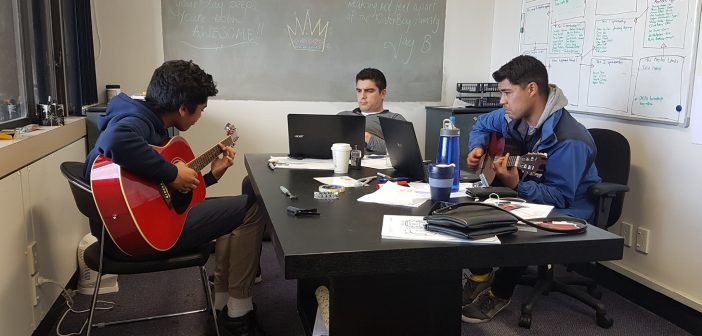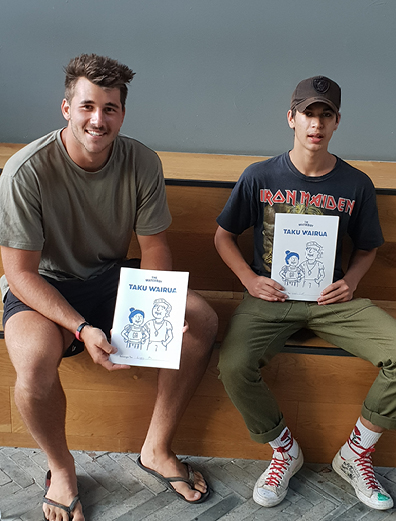
But sometimes it’s difficult to make good choices, perhaps through lack of finance or resources, or through a lack of family support. That’s where The Waterboy comes in.
The Waikato-wide programme developed by Thomas Nabbs has a core focus on sport, taking children, often from tough backgrounds, and giving them a leg-up to participate in a sport of their choice. Several prominent Waikato businesses and individuals support The Waterboy, keen to be involved in the programme that is clearly making a difference to individuals and their families, showing them what’s possible and giving them goals and aspirations.
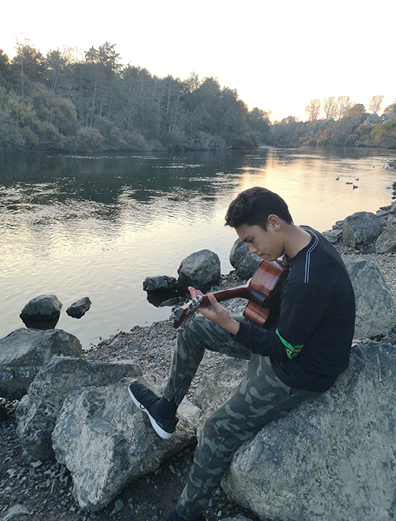
“With limited resources, we’ve offered Taku Wairua for more than a year,” Nabbs says, “but now we’re going digital, because we can see how online delivery will help improve retention and outreach.”
Particpants on Taku Wairua are teamed with a mentor and together they work through the Taku Wairua handbook that’s divided into four main sections: belonging, self-discovery, goal setting and citizenship. But Nabbs says it hasn’t always been easy for mentor and teen to stay in touch or meet regularly.
“What we’ve found is that mentors’ circumstances often change, and when that happens it can become difficult for the young people on the programme to maintain consistent contact, and so their enthusiasm and participation can drop off. And sometimes they’ll lose their work books and engagement decreases.”
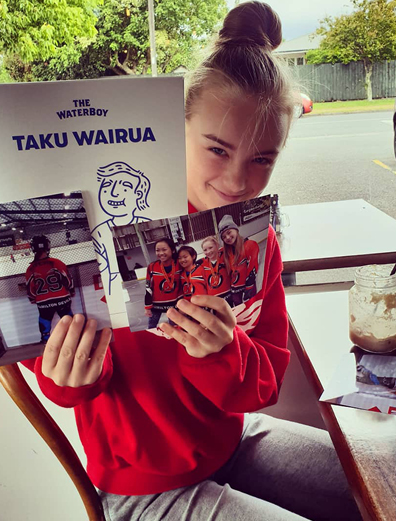
Taku Wairua receives financial support from SKYCITY, Chartwell Shopping Centre, WEL Energy Trust, DV Bryant Trust and Rotary. And now the Len Reynolds Trust and Company-X are on board to support the programme’s digitisation. The Len Reynolds Trust is a community based education trust, and Company-X is a software developer and content creative company based in Hamilton.
“We’re currently developing the first stage of the digital program,” Nabbs says. “The format will be slightly different online but follows the same guiding principles as the original programme. Having a sense of belonging is so important, so whether they have Māori heritage or not, we require each person to complete a pepeha in stage one.” (Pepeha is a way of introducing yourself in Māori, sharing your connections with the people and places that are important to you.)
“Belonging is about finding those roots. It’s an acknowledgement that their history has significance and they are not on this earth alone. As you set goals, whether you achieve them or not, you must never forget your roots. I really believe that,” Nabbs says.
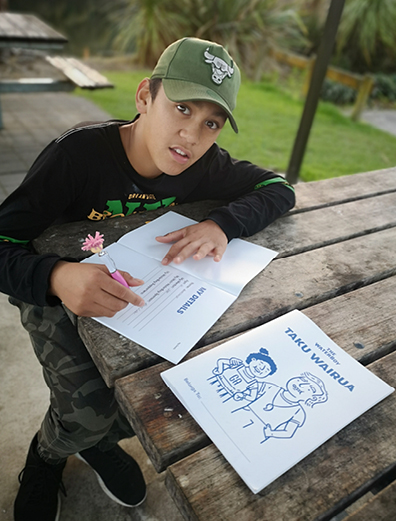
Self-discovery asks the participants to look inwards, to answer questions they perhaps have never considered before: What are they most proud of? What are they good at? What would they like to be better at? What would they like to change?
Citizenship requires participants to look outside themselves, to make a positive contribution to the world around them.
“We ask them to visit and learn about important places in the pepeha; their mountain, their river for example, or a place that is special to them, where they feel safe and secure. We get them to write down what they’ve learnt. And we get them to volunteer at least three times a year for an organisation that is doing good in their community.”
Nabbs says even though Taku Wairua will be offered online, they don’t want to take away the person-to-person contact altogether. “Going digital will make it easier for participants and their mentors to stay in touch and on target. It’ll involve participants and mentors downloading an app, and we’ll also have an online portal to bring in organisations and businesses that offer work experience and job opportunities, to give feedback and other recommendations.”

“What’s exciting is that we’ll be able to introduce so many more teenagers to Taku Wairua. It increases our ability to influence positive change and direction, building on our vision of stronger people, stronger communities.
“And we’re always looking for mentors and sponsors. That’s an ongoing part of our work. We need more businesses to offer entry-level jobs, who are willing to give kids a go. We love it when sponsors approach us. We’re building a community of sponsors for our sporting programme and Taku Wairua.”
For more stories and more information on how you can sponsor Kiwi kids through participating in sport or supporting Taku Wairua, visit www.thewaterboy.org.nz/.

